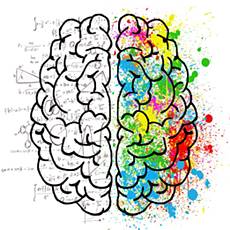Boost your Energy and Vitality
Tips and advice on how to improve vitality naturally
Fact Checked
×All the content published in our website is fact checked to validate its accuracy.
Visit our guidelines web page to learn more about our strict processes regarding how we review our content's sources: reliable and reputable journals, media websites, universities, colleges, organizations, and professionals.
Our articles are based on scientific evidence, and the references are included in its footnotes, which are clickable links to sound scientific papers.
First published: 11.Oct.2020
Fight off Fatigue
Weariness, lack of energy, tiredness, and fatigue are signs that you have to make some changes in your lifestyle.
Recover your vitality and boost your energy with these simple tips: eat a balanced diet including plant protein, sleep better, exercise more frequently, kick bad habits (smoking, drinking), lose weight, and feel your best.
In this article, we will explain the science behind this advice. Please read on.
References and Further Reading
(1) Lars Tummers, Bram Steijn, Barbara Nevicka, and Madelon Heerema, (2018). The Effects of Leadership and Job Autonomy on Vitality: Survey and Experimental Evidence. Rev Public Pers Adm. 2018 Sep; 38(3): 355-377. 2016 Oct 4. doi: [10.1177/0734371X16671980]
(2) Mark Muraven, Marylene Gagne, and Heather Rosman (2008). Helpful Self-Control: Autonomy Support, Vitality, and Depletion. J Exp Soc Psychol. 2008 May; 44(3): 573-585. doi: [10.1016/j.jesp.2007.10.008]
(3) Rudi G. J. Westendorp and Frank H. Schalkwijk, (2014). When longevity meets vitality. Proceedings of the Nutrition Society, Vol 73:3 August 2014, pp. 407-412
(4) D. M. Rose, et al., (2017). Associations of fatigue to work-related stress, mental and physical health in an employed community sample. BMC Psychiatry. 2017; 17: 167. 2017 May 5. doi: [10.1186/s12888-017-1237-y]
(5) Jordá FC and López Vivancos J., (2010). Fatigue as a determinant of health in patients with celiac disease. J Clin Gastroenterol. 2010 Jul;44(6):423-7. doi: 10.1097/MCG.0b013e3181c41d12
(6) NIH, National Institute on Aging (2016). Fatigue in Older Adults. Accessed 02.Nov.2018
(7) Audrey Bergouignan et al., (2016). Effect of frequent interruptions of prolonged sitting on self-perceived levels of energy, mood, food cravings and cognitive function. Int J Behav Nutr Phys Act. 2016; 13: 113. 2016 Nov 3. doi: [10.1186/s12966-016-0437-z]
(8) University of Georgia. Regular Exercise Plays A Consistent And Significant Role In Reducing Fatigue. ScienceDaily. ScienceDaily, 8 November 2006
(9) Luciana Torquati, Geeske Peeters, Wendy J. Brown, and Tina L. Skinner, (2018). A Daily Cup of Tea or Coffee May Keep You Moving: Association between Tea and Coffee Consumption and Physical Activity. Int J Environ Res Public Health. 2018 Sep; 15(9): 1812. 2018 Aug 22. doi: [10.3390/ijerph15091812]
(10) Oliver C. Witard, Chris McGlory, D. Lee Hamilton and Stuart M. Phillips, (2016). Growing older with health and vitality: a nexus of physical activity, exercise and nutrition. Biogerontology June 2016, Vol 17:3, pp 529-546
(11) Stephane Walrand, et al., (2008). Functional impact of high protein intake on healthy elderly people. Am J Physiol Endocrinol Metab. 2008 Oct; 295(4): E921-E928. 2008 Aug 12. doi: [10.1152/ajpendo.90536.2008]
(12) Schmitt, Antje, Belschak, Frank D., Den Hartog, Deanne N., (2017). Feeling vital after a good night’s sleep: The interplay of energetic resources and self-efficacy for daily proactivity. Journal of Occupational Health Psychology, Vol 22(4), Oct 2017, 443-454
(13) Richard M. Ryan, Netta Weinstein, Jessey Bernstein, Kirk Warren Brown, Louis Mistretta, Marylene Gagne, (2010). Vitalizing effects of being outdoors and in nature. Journal of Environmental Psychology, 2010; 30 (2): 159 DOI: 10.1016/j.jenvp.2009.10.009
(14) Charles Swencionis, et al., (2013). Weight Change, Psychological Well-Being, and Vitality in Adults Participating in a Cognitive-Behavioral Weight Loss Program. Health Psychol. 2013 Apr; 32(4): 439-446. 2012 Aug 13. doi: [10.1037/a0029186]
(15) Lily Y W Ho, Shamay S M Ng, (2020) Non-pharmacological interventions for fatigue in older adults: a systematic review and meta-analysis. Age and Ageing, Vol 49:3, May 2020, Pages 341-351, https://doi.org/10.1093/ageing/afaa019
(16) Samuel B Harvey, (2009). Tired all the time: can new research on fatigue help clinicians?. Br J Gen Pract. 2009 Apr 1; 59(561): 237-239, doi: [10.3399/bjgp09X420284]
(17) Cort Johnson, (2018). The Autoimmune Virus? Groundbreaking EBV Finding Could Help Explain ME/CFS. April 30, 2018, Simmaron Research Inc.
(18) Ardisson Korat, Andres V et al. (2024). Dietary protein intake in midlife in relation to healthy aging – results from the prospective Nurses’ Health Study cohort. The American Journal of Clinical Nutrition, Volume 119, Issue 2, 271 - 282. February 2024
About this Article
Boost your Energy and Vitality, A. Whittall
©2018 Fit-and-Well.com, 05.Nov.2018. Updated. 30.Oct.2024. Next review: 01.Nov.2027. https://www.fit-and-well.com/wellness/energy-vitality.html
Tags: vitality, sleep, fatigue, Chronic Fatigue Syndrome, exercise




